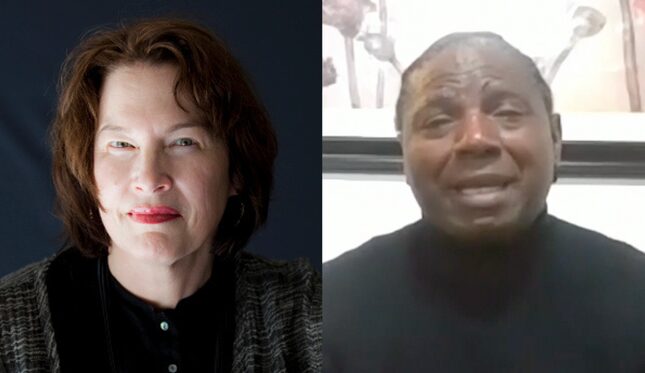What Does Alice Sebold Owe Anthony Broadwater?
There is a long, rich history in America of white women falsely accusing Black men of rape—a history that exists far beyond the bounds of the legal sphere.
In DepthIn Depth

When Alice Sebold, acclaimed author of the novel The Lovely Bones and bestselling memoir Lucky, published a statement addressing the recent exoneration of 61-year-old Anthony Broadwater, the Black man whom she’d wrongly accused of rape in 1981, I knew that it would be an imperfect apology. Sebold took eight days to finally make a statement—eight days to meditate on the shock and confusion that the news had undoubtedly brought up for her.
Then the 58-year-old author wrote, “I am truly sorry to Anthony Broadwater and I deeply regret what you have been through.” She went on to lament the fact that “my own misfortune resulted in Mr. Broadwater’s unfair conviction for which he has served not only 16 years behind bars but in ways that further serve to wound and stigmatize, nearly a full life sentence.”
While people were clamoring for Sebold to say something—anything—in the days after Broadwater was exonerated, eight days of contemplation on an innocent man’s 16 years of false imprisonment yielded a statement that in so many ways highlighted the fallacies and fallibility of what we perceive as justice in America. There was a glaring lack of nuance.
The statement gestured toward sincere apology but fell short, because it was missing the important elements of truth and accountability. Sebold managed to distance herself from the man who went to prison for a crime against her which he did not commit. She claimed that systemic (i.e racist) issues in the American judicial system were not “a debate, or a conversation, or even a whisper when I reported my rape in 1981.” She spoke of “the system that sent an innocent man to jail,” but never once acknowledged the fact that the system she speaks of is an inherently racist one. Indeed, she never even used the words “race” or “racism” in connection to what happened to Broadwater. That omission, I think, is a way of excusing herself from the inconvenient reality that she, herself a victim, also collaborated — however unwittingly — with that very same racist system to put Broadwater behind bars.
Broadwater was exonerated on November 22, after a producer developing a movie adaptation of Lucky found glaring inconsistencies in the case. The then-18-year-old Sebold had initially identified the wrong man in a police lineup, and prosecutors later “deliberately coached her into rehabilitating her misidentification,” according to defense lawyers. After she was randomly approached by Broadwater, months after her assault, Sebold went to police and accused him of rape, citing a feeling that he was her attacker. Based on this—and hair sample evidence later disproven as junk science—Broadwater was convicted and thrown in prison.
Sebold’s statement, like her bestselling book and everything else connected to this case, emphasizes the inconsistencies in our cultural conception of justice. What is justice, after all, in an inherently unjust, deeply racist and sexist society? Who gets justice, and what does justice look like for people who experience harm at the hands of others and particularly at the hands of the state? In America, justice is constantly shapeshifting, and one person’s idea of what is just can just as easily be another person’s idea of gross inequality and corruption. It’s the nebulous nature of the concept that makes it so easy to corrupt.
-

-

-

-

-

-

-

-

-

-

-

-

-

-

-

-

-

-

-

-

-

-

-

-

-

-

-

-

-

-

-

-

-

-

-

-

-

-

-

-








































